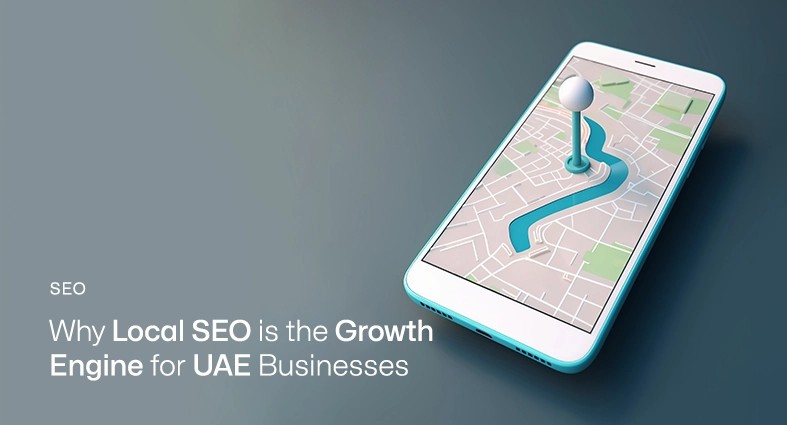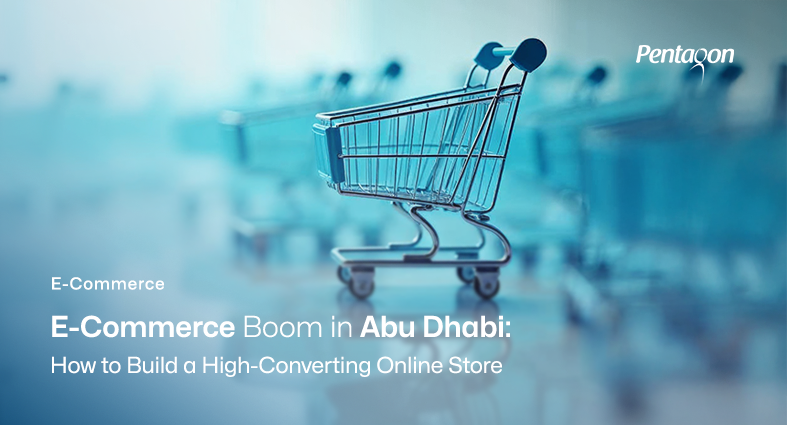With the rise of local search, it has become increasingly important for businesses to optimize their online presence for local customers. Local SEO (Search Engine Optimization) strategies can help businesses connect with local customers, increase visibility, and drive more foot traffic to their physical locations. To effectively reach and engage with local customers, businesses need to optimize their online presence using local SEO strategies. However, implementing successful local SEO strategies can be challenging for many businesses. In this blog, we will explore the most effective local SEO strategies to help businesses capture and retain local customers. From local keyword research and Google My Business optimization to local content creation and link building, we will cover all the crucial aspects of local SEO that businesses need to know to succeed in the online marketplace. With the help of this comprehensive guide, businesses can develop winning strategies for local SEO success and stand out among their competitors. Follow these tips and techniques to capture local customers and boost your business’s online visibility.
Local Keyword Research
Local keyword research is the process of identifying the specific keywords and phrases that people in your local area use when searching for products or services related to your business. This type of keyword research is crucial for local SEO because it allows you to optimize your website and other online assets with the right keywords, which can help you rank higher in local search results. Local keywords are specific search terms used by people in a particular location when looking for products or services. They often include the name of the city or region, as well as other location-specific terms. By understanding these keywords, businesses can optimize their website and other online properties to target local customers, improving their visibility in local search results.
Best Practices for local keyword research
- Understand the target audience and the terms they are likely to use when searching for products or services in the local area.
- Focus on long-tail keywords, which are more specific and less competitive than generic keywords.
- Include location-specific terms in keyword research, such as the name of the city, region, or neighborhood.
- Use keyword research tools to identify relevant and profitable keywords for the business.
- Regularly review and update keywords to ensure continued relevance and competitiveness in local search results.
Google My Business (GMB) Optimization
Google My Business (GMB) is a free tool offered by Google that allows businesses to create and manage their online presence on Google. GMB optimization involves creating and optimizing a business profile on Google to improve its visibility in local search results. Creating a GMB profile involves providing accurate and up-to-date information about the business, such as its name, address, phone number, website, hours of operation, and services offered. This information helps Google understand and categorize the business correctly. Reviews on GMB are an important factor in local SEO. Encouraging customers to leave reviews and responding to reviews promptly can help improve a business’s online reputation.
Optimizing GMB profile for local SEO
Optimizing a GMB profile for local SEO involves providing accurate and detailed information about the business, encouraging customer reviews, and posting regular updates and promotions. By following these strategies, businesses can improve their visibility in local search results and attract more customers. Optimizing a GMB profile for local SEO involves the following steps:
- Choose the Correct Business Category: When creating a GMB profile, it is important to choose the most relevant category for the business. The category helps Google understand and categorize the business correctly, and it also affects the search results the business appears in.
- Provide Accurate and Detailed Information: Providing accurate and detailed information about the business helps Google understand and rank the business in search results. The information should include the business name, address, phone number, website, hours of operation, and services offered.
- Upload High-Quality Photos and Videos: Photos and videos are an important part of a GMB profile. They help showcase the business and make it more attractive to potential customers. It is important to upload high-quality photos and videos that accurately represent the business and its offerings. This can include photos of the business’s products, services, team, and location.
- Encourage Customers to Leave Reviews: Reviews are a key factor in local SEO. Positive reviews can improve a business’s visibility in local search results and attract more customers. It is important to encourage customers to leave reviews on the GMB profile and respond to them promptly.
- Respond to Reviews Promptly: Responding to reviews promptly is an important part of GMB optimization. It shows that the business values customer feedback and is committed to providing excellent service.
- Post Updates and Promotions Regularly: Posting updates and promotions on the GMB profile can help keep customers engaged and up-to-date with the business’s offerings.
- Use Relevant Keywords: Using relevant keywords in the business description and posts can help improve the profile’s visibility in local search results. This includes keywords related to the business’s offerings, location, and industry.
- Add a Call-to-Action Button: Adding a call-to-action (CTA) button to the GMB profile can help drive traffic and conversions. The CTA button can be customized to encourage customers to call the business, book an appointment, or visit the website.
Local Citations
In the context of local SEO, a citation refers to any online mention of a business’s name, address, and phone number (NAP). Local citations can come in different forms, including business directories, social media profiles, and local listings. Essentially, a citation is an online reference to a business’s physical location. Local citations are important for local SEO because they provide search engines like Google with signals that help them determine the credibility and authority of a business. When search engines find consistent NAP information across different online sources, they become more confident that the business is legitimate and trustworthy, and as a result, they may give the business higher visibility in local search results.
To build local citations, businesses can start by identifying local directories, industry-specific websites, and other platforms where they can list their business information. It’s important to ensure that the NAP information is consistent across all citations to avoid any confusion or negative impact on local SEO efforts. Additionally, businesses can optimize their citation listings by including additional information such as business hours, website URL, and a brief description of the business. It’s worth noting that not all citations are created equal, and businesses should prioritize high-quality directories that are relevant to their industry and location. Getting listed on a large number of low-quality directories can hurt local SEO efforts, as it may appear spammy and lower the business’s credibility. It’s also important to regularly monitor and update citation listings as necessary to ensure that the information is accurate and up-to-date.
Online Reviews
Online reviews are crucial for local SEO as they influence consumer behavior and buying decisions. Positive reviews can help build trust with potential customers and increase visibility in local search results. To get more online reviews, businesses can start by encouraging their customers to leave reviews on various platforms such as Google My Business, Yelp, and Facebook. This can be done through email campaigns, social media posts, or in-person requests. Offering incentives or discounts for leaving a review can also be effective.
Businesses need to respond to reviews, whether they are positive or negative. Responding to reviews shows that the business values customer feedback and is committed to providing good customer service. For negative reviews, businesses should acknowledge the issue and offer a solution or apology. For positive reviews, businesses should thank the customer for their support and encourage them to visit again. It is important to note that businesses should never fake or purchase reviews, as this can lead to penalties and damage the business’s reputation. It is best to focus on providing quality products and services and encouraging genuine reviews from satisfied customers.
Local Content Creation
Local content creation is an essential component of local SEO, which involves creating content that targets a specific geographical location. The goal is to provide valuable information to local customers and demonstrate your relevance and authority in your local community. One of the main advantages of creating local content is that it can help you rank higher in local search results, as Google and other search engines prioritize local content when a user searches for a particular location. This means that businesses with strong local content have a better chance of ranking higher in local search results, which can lead to more website traffic, increased visibility, and ultimately, more customers.
There are several types of local content that businesses can create, including local news, events, guides, and directories. Local news involves covering events, activities, or developments in your community that are relevant to your business. Events can include local festivals, concerts, or other gatherings that your business is participating in or sponsoring. Guides are informative articles that help local customers make informed decisions, such as “10 Best Restaurants in Downtown” or “Top 5 Things to Do in the City.” Directories provide information about local businesses and services, including contact information, hours of operation, and reviews. Some key best practices include:
- Researching your local audience and understanding their interests and needs
- Conducting thorough keyword research to identify local keywords to target in your content
- Ensuring that your content is high-quality, informative, and relevant to your local audience
- Incorporating images, videos, and other multimedia to make your content more engaging
- Optimizing your content for search engines, including using relevant keywords, optimizing titles and meta descriptions, and ensuring that your content is mobile-friendly
Local Link Building
Local link building is the process of acquiring backlinks from websites that are relevant to your local area. It is an important aspect of local SEO because it helps to establish your business’s authority and credibility within the local community. By building links from reputable local sources, search engines can better understand that your business is relevant to local search queries, which can improve your website’s visibility in local search results. To build local links, there are several strategies you can use. First, consider reaching out to other local businesses, organizations, or associations in your community and offer to collaborate with them on a project or event. This can help establish relationships that can lead to reciprocal links. You can also sponsor or participate in local events or sponsor local charities, which can generate local press and backlinks from event or charity websites.
Another strategy is to create high-quality content that appeals to local audiences and can generate natural backlinks. This can include local news stories, industry reports, or even helpful guides or tutorials that are specific to your local area. When building local links, it’s important to follow best practices to ensure that your efforts are effective and sustainable. Some key best practices include:
- Focus on quality over quantity: It’s better to have a few high-quality backlinks from reputable local sources than many low-quality links from irrelevant or spammy websites.
- Keep your anchor text natural: Avoid using exact match keywords in your anchor text as this can appear spammy and may result in penalties from search engines. Instead, use natural language that accurately reflects the content of the linked page.
- Stay relevant: Make sure that the websites you are linking from and linking to are relevant to your business and industry. This helps search engines to better understand the context and relevance of your website and can improve your local search rankings.
- Monitor your backlink profile: Regularly monitor your backlink profile to ensure that you are not receiving spammy or low-quality links that could harm your website’s SEO.
Geotagging
Geotagging refers to the process of adding geographical location data, such as latitude and longitude, to digital content like images, videos, and websites. This information can help search engines understand the location relevance of your content and improve its visibility in local search results. Geotagging is important for local SEO because it can help businesses target their content to specific local markets. For instance, when you geotag your website or images, search engines can associate your content with a particular geographic location, making it more visible to users searching for local services or products.
To geotag your website, you can add location data to your website’s metadata using HTML tags like geo.region and geo.position. You can also use a variety of plugins or tools to automate the process of geotagging your website’s content. To geotag your images, you can add location data to your images’ metadata using image editors or geotagging software. Alternatively, you can use GPS-enabled devices to capture geolocation data automatically when you take pictures. It is a powerful local SEO strategy that can help businesses improve their online visibility, attract more local customers, and increase their website’s rankings in local search results. By optimizing your website and images for geolocation, you can improve the relevance of your content for local users and increase the chances of attracting more qualified leads to your business.
Local Schema Markup
Local schema markup is a type of structured data markup that helps search engines better understand the content on a website, specifically with local business information. It provides additional information about a business such as its address, phone number, opening hours, and other relevant details. The importance of local schema markup for local SEO lies in the fact that it helps search engines better understand the context of a website’s content, allowing them to serve more accurate and relevant results to users. It also helps to improve the visibility of a business in local search results, making it easier for potential customers to find and engage with the business.
To add local schema markup to a website, there are a few steps to follow. Firstly, businesses need to identify the relevant schema markup that they need to add to their website based on their business type and the information they want to provide. Once they have identified the schema markup, they need to add it to the website’s HTML code in the appropriate locations, such as the header, footer, or body of the page. This can be done manually or using plugins that are specifically designed to add schema markup to websites. Finally, it is important to test the schema markup to ensure that it is properly implemented and working as intended using tools like the Google Structured Data Testing Tool.
Local SEO Tools
Local SEO is a critical aspect of online marketing for small businesses that are focused on capturing local customers. To achieve success in local SEO, businesses need to use the right tools that can help them to analyze their performance and make data-driven decisions. Local SEO tools are essential for businesses that are focused on capturing local customers. By using the right tools and analyzing the data they provide effectively, businesses can improve their online presence, attract more customers, and grow their business.
Best local SEO tools
- Google My Business: This is a free tool from Google that allows businesses to manage their online presence across Google, including Google Maps, Google Search, and Google+. It allows businesses to update their contact information, photos, and hours of operation. It also provides insights into how customers are interacting with their business.
- Moz Local: Moz Local is a tool that helps businesses manage their online listings across the web. It allows businesses to claim and verify their listings, monitor their online reputation, and analyze their performance.
- BrightLocal: BrightLocal is a local SEO tool that provides businesses with a suite of tools to manage their online reputation, track their rankings, and monitor their local search performance. It also provides businesses with a range of local SEO audit tools that can help them to identify areas where they need to improve.
- SEMrush: SEMrush is an all-in-one SEO tool that provides businesses with a range of tools to manage their online presence, including keyword research, site audit, rank tracking, and competitor analysis.
How to use local SEO tools effectively
- Define your goals: Before you start using local SEO tools, it’s important to define your goals and objectives. This will help you to choose the right tools and analyze the data they provide effectively.
- Monitor your progress: Once you start using local SEO tools, it’s important to monitor your progress regularly.
- Analyze your data: Local SEO tools provide businesses with a wealth of data, but it’s important to analyze this data effectively. This will help you to identify patterns and trends that can help you to improve your local SEO strategy.
- Take action: Once you’ve analyzed your data, it’s important to take action. This may involve making changes to your website, optimizing your online listings, or improving your content. The key is to use the data you’ve gathered to make informed decisions that can help you to improve your local SEO performance.
Conclusion
Local SEO is a powerful tool for businesses looking to attract customers in their area. By utilizing the strategies discussed in this article, such as conducting local keyword research, optimizing Google My Business, building local citations, generating online reviews, creating locally relevant content, and building local backlinks, businesses can improve their visibility in search results and attract more local customers. Additionally, utilizing geotagging and local schema markup can provide even more opportunities for businesses to rank higher in search results. By using the right local SEO tools and constantly monitoring and adjusting their strategy, businesses can stay ahead of the competition and capture the attention of their target audience in their local market. Are you ready to capture your local market and outrank your competitors? Let Pentagon’s expert team of SEO professionals help you with our top-notch local SEO services in Abu Dhabi. Get in touch with us today and let’s start building your local online presence!
services
Google Algorithm Updates 2023: The Year in Review
Feel free to send us a message.
Please, share your thoughts, and let's chat over a cup of tea.


















